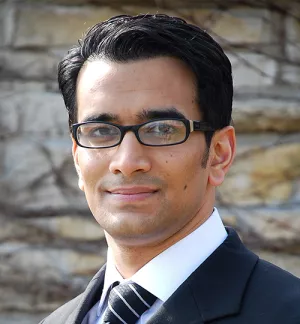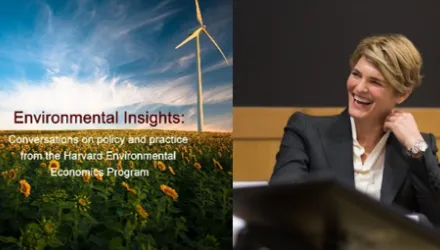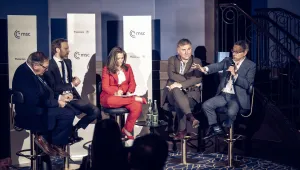THIS week, the government published its plans for making the professions more open to those from poorer backgrounds.
As someone who spent part of his childhood on a council estate and the first person in my family to go to university, I was honoured to be on the panel which collectively helped to suggest many of those plans.
One of the things which we looked at was why the progress in social mobility which we saw in the Fifties and Sixties has slowed down in the past few decades. I was asked to offer my thoughts on why this has happened in the financial sector. We found that although most big banks want to recruit only according to ability, they only choose from the people they interview. And they cannot choose who to interview based on ability. When they are choosing who to interview, and who gets on their graduate schemes, they tend to select people who went to the most prestigious universities. And that intake is very badly unrepresentative of the socio-economic profile of the country, because not enough bright, poor kids go to those universities.
Ultimately, mobility is about making sure that your background is no barrier to fulfilling your aspirations. I believe strongly in that.
But it is important that every kid on every estate who dreams of one day making it as a lawyer, doctor or businessman understands that, however much the government can do to make their path easier, it is they who have to walk it. And that means making the effort to learn the techniques and skills for success.
Let me give you a few examples. Firstly, opportunity. The ability to spot opportunity can be learned. It is a question of keeping your eyes open and being aware of the advantages you have over others.
For example, because my dad ran a newsagent, I could read as many newspapers as I wanted to. So, from a young age, I did, and keeping an eye on the financial pages became a passion.
Then, by the early Nineties, when the government was privatising lots of public companies like Railtrack, British Energy and so on, and building societies were becoming banks, I could see that there was money to be made if you invested early. And that's how I made my first investment, which was enough to pay for some study and travel.
But the ability to spot opportunities is one of many attitudes which it's worth trying to develop. Another is the ability to spot connections. One Harvard professor called Mark Granovetter has done a very interesting study called The Strength of Weak Ties.
In it, he shows that most of the social benefits you get from your connections are not from your circle of friends. They're actually from your friends' friends.
He says that a significant proportion of jobs are found like that. That's certainly been true for me. When we were starting the insurance business, two or three of our biggest customers came from a friend, because they owed him favours.
But the point about the ability to spot opportunity and to make use of connections is that they are attitudes. That means everyone can learn how to develop them. The government can help break down barriers, but ultimately it is up to each of us to write our own success story.
Azeem Ibrahim was a member of the Prime Minister's Panel for Social Mobility and Access to the Professions. He is a research scholar at Harvard and a world fellow at Yale.
Ibrahim, Azeem. “Government Can Help, But It's Down to Each of Us.” The Scotsman, January 19, 2010





